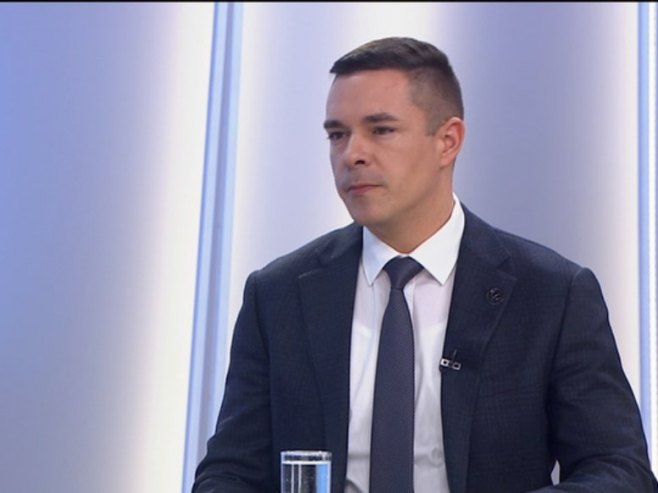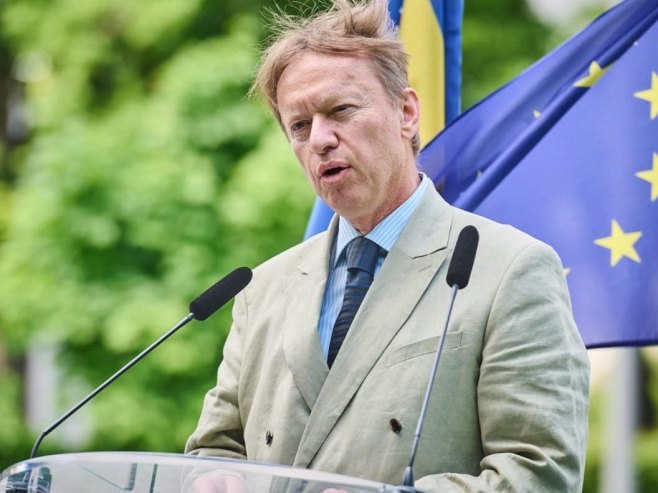The decision of the Central Election Commission of BiH to terminate the mandate of the President of Republika Srpska cannot be viewed as a routine administrative move without deeper legal and constitutional implications, said Minister of Justice Miloš Bukejlović.
“This is an intervention that goes far beyond the electoral framework and enters the domain of constitutional order, raising the fundamental question: who actually makes decisions in this country and on what basis?” Bukejlović asked.
He emphasized that the most serious problem lies in the normative foundation of the case. Milorad Dodik, as the legitimately elected President of Republika Srpska, was convicted for an act defined as criminal by a foreign individual who claims to be the high representative—though lacking a mandate from the UN Security Council. Dodik was convicted for acting in accordance with his constitutional powers, as prescribed by the Constitution of Republika Srpska.
“This so-called ‘law’ was never adopted through the parliamentary procedure required by the Constitution of BiH. When someone is convicted based on a norm not passed by a competent legislative body—and for carrying out their own constitutional duties—this is no longer the application of law, but an abuse of institutions,” Bukejlović stated.
He explained that such abuse begins when a “law” is imposed unconstitutionally, followed by a trial based on it, and then further institutions are activated—leading to the CEC’s decision, which may satisfy procedural form but is fundamentally unjust.
“This does not represent the rule of law but rather a mechanism of political exclusion wrapped in bureaucratic form,” said Bukejlović.
He noted that while the CEC has jurisdiction within the electoral system, the issue in this case is not procedure, but the very foundation upon which the process stands.
“If the conviction of the president of Republika Srpska is based on an act not adopted in accordance with the constitutional procedure, then no decision stemming from it can be considered separate from that flaw. What is built on an unconstitutional act cannot have constitutional effect,” Bukejlović warned.
“This is no longer just about a legitimately elected president of Republika Srpska. What is at stake is the entire legal order. If it is possible to remove the president from office based on an unconstitutional act—simply for upholding his own constitution—then tomorrow, any official or citizen of Republika Srpska could fall into the same trap. Today it is the president, tomorrow it could be a mayor, an MP, or any citizen who decides to uphold the Constitution of Republika Srpska,” Bukejlović added.
For this reason, he concluded, decisions like the one taken today by the CEC cannot be accepted as legally valid within the institutional framework of Republika Srpska—not because someone likes or dislikes them, but because they are founded on an unharmonized, disputed, and unconstitutional basis.
“If the legal foundation is lacking, everything derived from it collapses on its own,” Bukejlović concluded.
Source: RTRS








